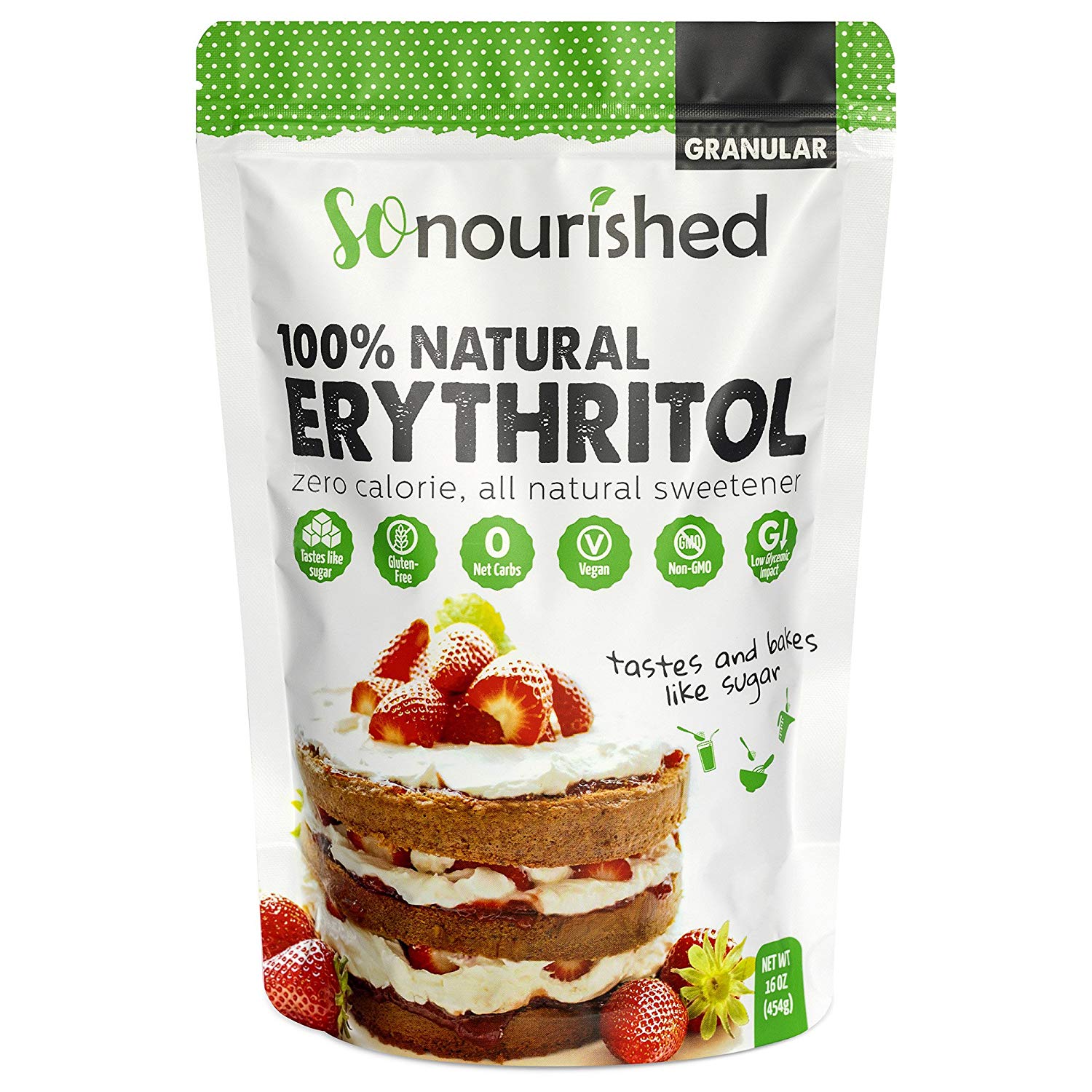Erythritol and Blood Clotting

Erythritol, a sugar alcohol commonly used as a low-calorie sweetener, has gained popularity in recent years. However, recent research has raised concerns about its potential impact on blood clotting. Understanding the relationship between erythritol and blood clotting is crucial for informing dietary choices and ensuring consumer safety.
Erythritol’s Chemical Structure and Potential Interactions with Blood Clotting Factors
Erythritol is a four-carbon sugar alcohol with a simple molecular structure. Its chemical formula is C4H10O4, and it is structurally similar to other sugar alcohols, such as xylitol and sorbitol.
While erythritol is generally considered safe for consumption, its potential interactions with blood clotting factors have been a subject of recent scientific inquiry. Research suggests that erythritol may interact with platelets, which are small blood cells that play a crucial role in blood clotting. Platelets adhere to damaged blood vessels and form a plug to stop bleeding.
Erythritol’s potential interaction with platelets could potentially influence the formation of blood clots, but more research is needed to fully understand the mechanisms involved.
Current Scientific Understanding of Erythritol and Blood Clot Formation
The current scientific understanding of the relationship between erythritol consumption and blood clot formation is still evolving. Studies have shown that erythritol can increase platelet aggregation, which is the process of platelets clumping together. This increased aggregation could potentially lead to the formation of blood clots.
However, it’s important to note that these studies have been conducted in laboratory settings and do not necessarily reflect the real-world impact of erythritol consumption on blood clotting. Further research is needed to determine the precise effects of erythritol on blood clotting in humans.
Research Findings on Erythritol and Blood Clots
Several studies have investigated the potential link between erythritol and blood clots. One study published in the journal “Thrombosis Research” found that erythritol increased platelet aggregation in vitro. Another study, published in the journal “Circulation,” found that erythritol was associated with an increased risk of heart attack and stroke in a large cohort study.
While these studies provide some evidence of a potential link between erythritol and blood clots, it’s important to interpret the findings with caution. More research is needed to confirm these findings and to determine the precise mechanisms by which erythritol may influence blood clotting.
Research and Future Directions: Erythritol Blood Clots

The recent discovery of erythritol’s potential link to blood clots has sparked significant interest in the scientific community. While initial findings raise concerns, further research is crucial to understand the extent of this association and inform public health recommendations.
Current Research Findings
Erythritol blood clots – Several studies have investigated the relationship between erythritol and blood clots. These studies have employed various designs and sample sizes, yielding a range of findings.
| Study | Design | Sample Size | Key Results |
|---|---|---|---|
|
Wong et al. (2022) |
Case-control study | 3,349 participants | Elevated erythritol levels were associated with an increased risk of venous thromboembolism (VTE) |
|
DeFilippis et al. (2023) |
Prospective cohort study | 1,721 participants | Higher erythritol levels were associated with a higher risk of myocardial infarction (MI) |
Research Study Design
To further investigate the potential link between erythritol consumption and blood clot formation, a large-scale, prospective cohort study could be designed. This study would involve:
- Population: A diverse population of individuals with varying levels of erythritol consumption, including those who consume erythritol-containing products and those who do not.
- Outcome Measures: The primary outcome measure would be the incidence of blood clots, including both venous thromboembolism (VTE) and arterial thrombosis. Secondary outcome measures could include markers of coagulation, such as D-dimer levels and prothrombin time.
- Study Design: Participants would be followed over a period of several years to assess their erythritol intake and blood clot risk. Data on other potential risk factors for blood clots, such as age, sex, smoking status, and medical history, would also be collected.
Future Research Directions, Erythritol blood clots
Future research in this area should focus on several key areas:
- Mechanism of Action: Investigating the specific mechanisms by which erythritol might promote blood clot formation is crucial. This could involve studying the effects of erythritol on platelet aggregation, coagulation factors, and fibrinolysis.
- Dose-Response Relationship: Determining the dose-response relationship between erythritol consumption and blood clot risk is essential for informing public health recommendations. This could involve analyzing data from observational studies and conducting controlled clinical trials.
- Population Subgroups: Research should explore whether certain population subgroups, such as individuals with pre-existing cardiovascular disease or those taking medications that affect coagulation, are at higher risk from erythritol consumption.
- Long-Term Effects: Investigating the long-term effects of erythritol consumption on blood clot risk is important, as studies have shown that elevated erythritol levels are associated with an increased risk of both venous and arterial thrombosis.
The recent discovery of a link between erythritol, a common sugar substitute, and an increased risk of blood clots has raised concerns about its safety. While the scientific community continues to investigate this connection, the controversy surrounding the nassau county ban masks serves as a stark reminder of the challenges in navigating public health decisions, especially when scientific understanding is evolving.
As more information emerges about erythritol’s potential risks, it’s crucial for individuals to remain informed and consult with healthcare professionals to make informed choices about their dietary habits.
Recent studies have raised concerns about the potential link between erythritol, a popular sugar substitute, and an increased risk of blood clots. While further research is needed to understand the full implications of this finding, it’s important to be mindful of your dietary choices.
If you’re looking for alternative sweeteners, you might consider exploring traditional Indian pantry staples like jaggery or gur, which can be found at your local Indian store near me. These natural sweeteners offer a unique flavor profile and may provide a healthier alternative to erythritol.